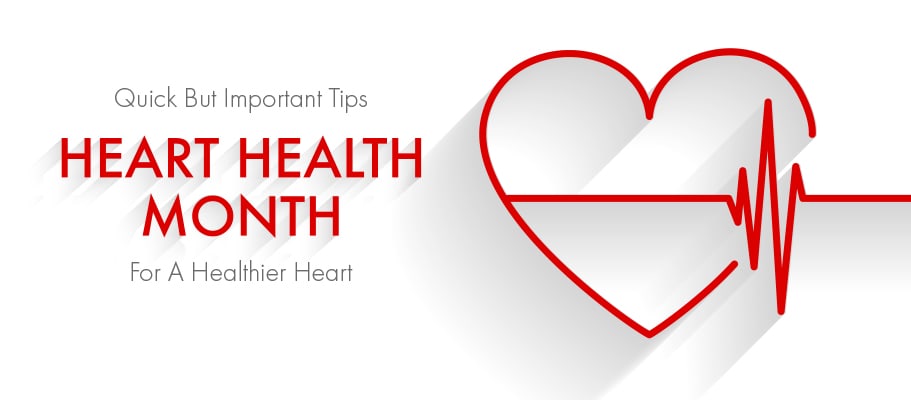
Both of my parents unfortunately developed cardiovascular disease, and I know that while I was growing up, my family and I definitely could have eaten more healthily. Being a Southerner, however, we loved our foods often smothered and covered, and I sure did love my sweets! And while the foods were delicious, one of the most effective ways to support heart health is through a balanced diet rich in nutritious foods and also being prepared in a healthy way. And this is best as a lifestyle choice, not just as the exception once every week or so.
That's why we're always sharing such delicious recipes that focus on farm-fresh produce items created in a healthy way whenever possible. Trust us, that does not take away the deliciousness, either! Plus, by incorporating more of these heart-healthy foods into your daily meals, you can reduce the risk of cardiovascular disease and promote optimal cardiovascular function for greater longevity and health. And, our health is not something to take for granted as I experienced when I lost my Mom at the young age of 58.

The Importance of Heart Health:
The heart is a vital organ responsible for pumping blood and delivering oxygen and nutrients to the body's tissues and organs, but poor heart health can lead to various cardiovascular conditions, including heart disease, stroke, and hypertension. Adopting a heart-healthy lifestyle, which includes regular exercise and a nutritious diet, is essential for preventing these health issues and maintaining cardiovascular wellness.
Key Nutrients for Heart Health:
Several nutrients play a significant role in supporting heart health. These include:Omega-3 Fatty Acids: Found in fatty fish like salmon, mackerel, and trout, omega-3 fatty acids help reduce inflammation, lower blood pressure, and decrease the risk of heart disease.
Fiber: Fiber-rich foods such as fruits, vegetables, whole grains, and legumes can help lower cholesterol levels, regulate blood sugar, and promote healthy digestion, all of which contribute to heart health.
Antioxidants: Antioxidant-rich foods like berries, nuts, seeds, and leafy greens help combat oxidative stress and inflammation, which are linked to heart disease and other chronic conditions.
Potassium: Foods high in potassium, such as bananas, spinach, avocados, and sweet potatoes, help regulate blood pressure and support heart function.
Magnesium: Magnesium-rich foods like nuts, seeds, whole grains, and leafy greens play a crucial role in maintaining heart rhythm and blood pressure levels.

Heart-Healthy Foods to Include in Your Diet:
Incorporating a variety of heart-healthy foods into your meals can significantly benefit your cardiovascular health. Some examples include:Fatty Fish: Salmon, sardines, and trout are excellent sources of omega-3 fatty acids, which can help reduce the risk of heart disease and stroke.
Whole Grains: Choose whole grain options like brown rice, quinoa, oats, and whole wheat bread, which are rich in fiber and essential nutrients beneficial for heart health.
Fresh Fruits and Vegetables: Colorful fruits and vegetables are packed with vitamins, minerals, fiber, and antioxidants that support heart health. Aim to include a variety of fruits and vegetables in your diet daily.
Nuts and Seeds: Almonds, walnuts, chia seeds, and flaxseeds are nutrient-dense foods rich in heart-healthy fats, fiber, and antioxidants.
Legumes: Beans, lentils, chickpeas, and peas are excellent sources of plant-based protein, fiber, and other nutrients that promote heart health.
Olive Oil: Use olive oil as a healthier alternative to saturated fats like butter or margarine. Extra virgin olive oil is rich in monounsaturated fats and antioxidants, which can help lower cholesterol levels and reduce the risk of heart disease.
Dark Chocolate: Dark chocolate with a high cocoa content (70% or higher) contains flavonoids that have been shown to improve heart health by lowering blood pressure and improving blood flow.

Remember to combine a healthy diet with regular physical activity and other healthy mindful habits! More on that another time. But the first step in prioritizing heart health is through a balanced diet rich in nutrient-dense foods, which is essential for preventing cardiovascular disease and promoting overall well-being. By incorporating a variety of heart-healthy foods into your meals, you can nourish your heart and enjoy the benefits of optimal cardiovascular function for years to come. So, who's ready to get started? I am, and I know my parents would be proud!



I eat it often it helps with my health problems!